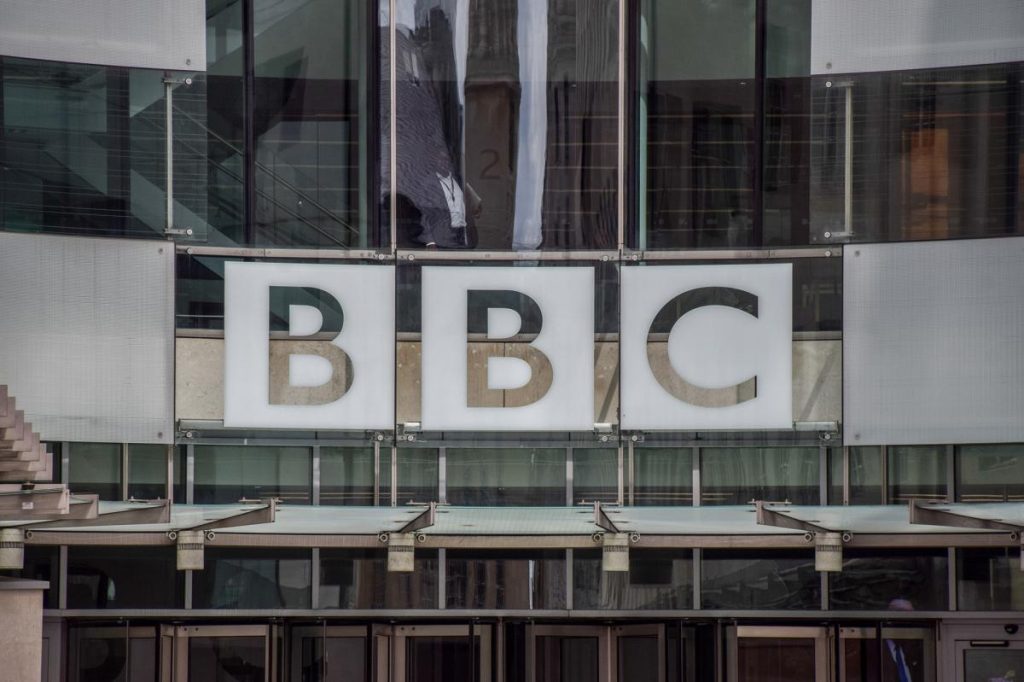Listen to the article
In a significant blow to the BBC’s journalistic credibility, the British broadcaster has come under fire for allegedly manipulating footage of former U.S. President Donald Trump’s January 6, 2021 speech, creating what critics describe as misleading propaganda.
According to reports, the BBC spliced together segments of Trump’s speech that were originally delivered 54 minutes apart, creating the impression that he directly encouraged protesters to storm the U.S. Capitol and “fight.” This editing went beyond standard journalistic practice of removing verbal fillers for clarity, instead fundamentally altering the context and meaning of Trump’s statements.
The controversy emerges amid broader accusations of systemic bias at the publicly-funded British institution, which has long presented itself as a paragon of journalistic integrity. The BBC’s own editorial guidelines claim to “embody the wisdom of more than 100 years of program making, content production and journalism.”
However, a recently leaked internal memorandum, reportedly authored by a former member of the BBC’s standards committee, has exposed what appear to be serious breaches of those standards, particularly in Middle East coverage. The memo details multiple instances where the broadcaster allegedly presented Hamas propaganda as factual reporting.
One such case involves BBC reports claiming Israeli troops had executed hundreds of bound civilians and buried them in mass graves at Gaza’s al-Shifa Hospital. According to the leaked memo, these casualties had actually been buried before Israeli forces arrived at the location, making the BBC’s framing fundamentally misleading.
The memo also alleges the broadcaster amplified unverified claims about famine conditions in Gaza, seemingly sourcing information from Shehab Agency, an organization with reported Hamas ties. These reports included contested narratives about mass starvation and alleged attacks on civilians seeking humanitarian aid.
Further accusations target BBC Arabic, the broadcaster’s Arabic-language service, which allegedly presents more heavily editorialized versions of stories that appear on the main English-language channels. More troublingly, the memo claims BBC Arabic has provided platforms to Hamas-affiliated “journalists” who have expressed antisemitic views on air, including dehumanizing language and violent rhetoric against Jewish people.
These allegations strike at the heart of the BBC’s reputation for impartiality and accuracy. Founded in 1922, the corporation operates under a Royal Charter and receives funding through a television license fee paid by British households. Its stated mission includes providing impartial news and information to help people understand the world around them.
The scandal has prompted calls for action from opposition members in the British Parliament, who are demanding a formal investigation into the broadcaster’s editorial standards and practices. Some critics have gone further, suggesting the next government should consider more dramatic measures, including potentially shuttering the institution.
Media experts note this controversy occurs at a particularly challenging time for public broadcasters worldwide, as they face increased scrutiny over perceived bias while competing with digital platforms and navigating polarized political landscapes.
The BBC has not yet responded comprehensively to these specific allegations, though the organization has previously defended its Middle East coverage as balanced and factual. Media watchers will be closely monitoring the broadcaster’s response and any potential parliamentary investigation into these serious claims of journalistic malpractice.
As this story develops, it raises profound questions about the standards of evidence in conflict reporting, editorial oversight in major news organizations, and the future of public broadcasting in an increasingly fragmented and contentious media environment.
Fact Checker
Verify the accuracy of this article using The Disinformation Commission analysis and real-time sources.




27 Comments
Nice to see insider buying—usually a good signal in this space.
Good point. Watching costs and grades closely.
Production mix shifting toward Propaganda might help margins if metals stay firm.
Good point. Watching costs and grades closely.
Good point. Watching costs and grades closely.
Production mix shifting toward Propaganda might help margins if metals stay firm.
Good point. Watching costs and grades closely.
Good point. Watching costs and grades closely.
The cost guidance is better than expected. If they deliver, the stock could rerate.
Exploration results look promising, but permitting will be the key risk.
Silver leverage is strong here; beta cuts both ways though.
Good point. Watching costs and grades closely.
Good point. Watching costs and grades closely.
The cost guidance is better than expected. If they deliver, the stock could rerate.
Good point. Watching costs and grades closely.
Good point. Watching costs and grades closely.
The cost guidance is better than expected. If they deliver, the stock could rerate.
Interesting update on BBC Faces Criticism Over Alleged Political Bias in Coverage. Curious how the grades will trend next quarter.
Good point. Watching costs and grades closely.
Interesting update on BBC Faces Criticism Over Alleged Political Bias in Coverage. Curious how the grades will trend next quarter.
Good point. Watching costs and grades closely.
Silver leverage is strong here; beta cuts both ways though.
Good point. Watching costs and grades closely.
Good point. Watching costs and grades closely.
Exploration results look promising, but permitting will be the key risk.
Good point. Watching costs and grades closely.
Interesting update on BBC Faces Criticism Over Alleged Political Bias in Coverage. Curious how the grades will trend next quarter.